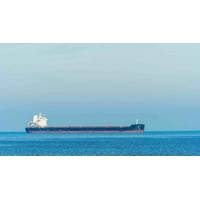Argentina's biodiesel industry is at risk after the European Union threatened to impose tariffs on imports from the South American country, following accusations that the nation unfairly subsidized its biofuel sector.
The threat of tariffs has halted Argentine biofuel sales to the EU, industry sources told Reuters, adding that imposing a tax would leave 85 percent of the country's biofuel exports without a viable market and may force suppliers to close shop.
Boasting major producers like Cargill and Bunge , Argentina is a leader in biodiesel exports. But the sector has suffered trade sanctions in the past after being accused of illegally benefiting from subsidized soybeans.
"It is very likely that Europe could apply anti-subsidy sanctions in two or three months. In that scenario, there is a high probability that production lines would stop," said Claudio Molina, Executive Director of the Argentina Association of Biofuels and Hydrogen.
The industry had previously avoided EU sanctions by redirecting its biodiesel shipments to other markets. But the sector, which recorded 1.2 billion dollars in revenue last year, can no longer redirect exports to the United States.
In late 2017, Washington imposed tariffs and stopped Argentine biodiesel imports after similar accusations of subsidies and "dumping."
The EU's threat has already put a damper on sales to Europe, trimming Argentina's biodiesel exports to no more than 700,000 tons this year, down from 1.65 million tons shipped in 2017, according to Argentina's Chamber of Biofuels (CARBIO).
"Europe is a threat to us," CARBIO President Luis Zubizarreta said, adding that biodiesel plants can barely operate without the European market.
The EU's investigation into the alleged subsidies began four months after it lost a case at the World Trade Organization in which it accused Argentina of dumping. Following the WTO ruling, the EU revoked duties that had blocked Argentine biodiesel imports to Europe for three years.
"It's a bad situation, since the chances that we will recover those external markets is low,” said an industry source who asked not to be named.
In May, the Argentine government raised export taxes on biodiesel to 15 percent from 8 percent. The increase may also prove to hurt the industry, according to Zubizarreta.
INTERNAL MARKET, AN ALTERNATIVE
The investigation could drag on for over a year, and sources say the EU is expected to levy provisional rates on biodiesel in the second half of 2018, contributing to a pessimistic outlook for the industry. Molina believes increasing domestic consumption may be the industry's best option.
Argentine law currently mandates fuel providers use a 10 percent mixture of biodiesel in all diesel fuel sold to the public. The country used 1.17 million tons of biofuel last year, according to government data.
Increasing that mix to 12 percent while also using more biodiesel in power plants, public transport, and agricultural machinery could cover up to half of Argentina's annual production capabilities of 4.4 million tonnes within three years, Molina said.
However, plans to raise mix quotas for publicly consumed biodiesel do not yet exist, a government source told Reuters.
"Sustaining the industry with an internal market of 1.1 million tonnes is practically impossible. If we do not have new export markets, we are just around the corner from starting to shut down production lines," said a source at a biodiesel exporting firm who wished to remain anonymous.
Reporting by Maximilian Heath





